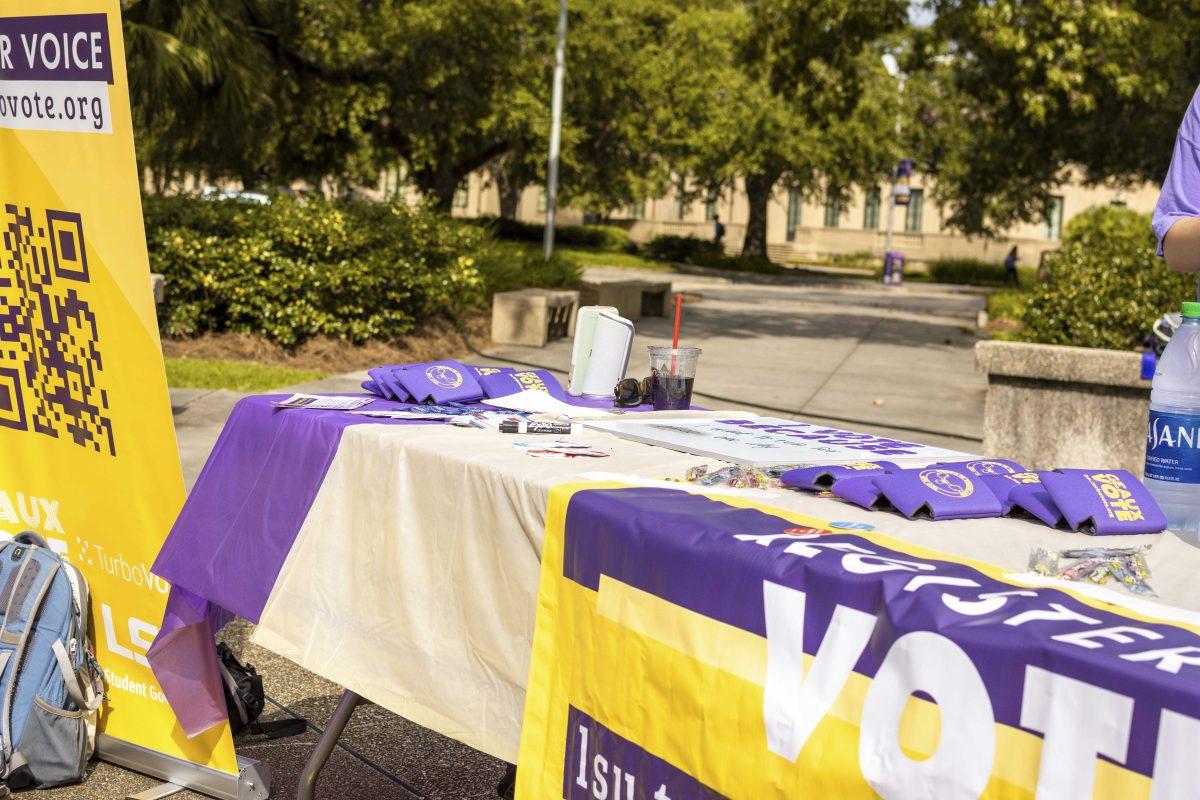Voting is the pinnacle of democracy, the wheels that keep the freedom bus trucking along. But what role do students play in this?
Young adults, especially college students, have a bad reputation for voting at lower rates than older generations. College students also move more frequently, are less likely to have a driver’s license and aren’t contacted as frequently by political campaigns as are older people. These obstacles create barriers for students when registering and voting.
Political science junior Emanuel Lain said voting and registering to vote should be simplified so more people, especially college students, have the opportunity to vote.
“As a country, we could make voting easier by taking steps such as same-day voter registration, automatic voter registration and making sure that polling sites are located where students are so that they can vote easily,” Lain said. “The absence of these policies is a form of voter suppression. If we want a fully functional democracy, we must take steps to ensure that everyone can participate in it.”
Political science freshman Olivia Grice said voter education should be prioritized. All voters, including college-age voters, should educate themselves on the elected officials and policies that affect their state before arriving at the voting booth.
“I would rather people not vote if they know nothing about politics and what is going on in their state,” Grice said.
Millennials and Generation Z will be the largest share of eligible voters in 2020, according to The Campus Vote Project. These age groups haven’t been the largest share in the past due to their lower voting rates in previous elections.
Political Science Assistant Professor Anna Gunderson said young people should continue to be encouraged to vote.
“Young people need to vote to make sure their voices are reflected in our government and to encourage policymakers to pay attention to the needs and wants of younger voters,” Gunderson said.
She also expressed how the University’s faculty members can encourage voting within their classes.
Elected officials make decisions on topics like student debt, funding for higher education and the economy, all of which are relevant to students. Student voters more than doubled from 2014 to 2018, but some think there is still a way to go, according to a Tufts study.
Geaux Vote LSU is a non-partisan student organization that aims to engage University students in civic responsibility. It holds voter registration drives, educates students on the voter process and works on legislation to make voting more accessible for students. The organization held a Voter Registration Day on Sept. 19 to give students the opportunity to register to vote before the Sept. 21 deadline.
Geaux Vote is dedicated to changing these historic trends and increasing student voting turnout rates at the University, according to Geaux Vote LSU President Grace Bordelon.
“One of our goals is to remove the barriers around voting by educating students and also by passing legislation that makes it easier for them to get out and vote,” Bordelon said.
Bordelon also mentioned the organization recently worked on legislation that allows students to present their TigerCard as means of identification at polling locations for students who may not have a driver’s license.
Political science and liberal arts senior Brooklen Farley listed organizations, including Geaux Vote LSU and Students for John Bel Edwards, that have encouraged students to be civically engaged, but said
some students are still apathetic about voting.
Farley said many young people are ridiculed when they attempt to be civically engaged, which can contribute to
this apathy.
“Our voices, it’s not that they are not heard, they are constantly invalidated,” Farley said. “Older generations count on us not paying attention and not banding together. If we amass our power through social media and digital advertising, I think it would make a large impact.”
Are you voting?: LSU students and faculty discuss the importance of voting, civic engagement
October 1, 2019
LSU Voter Registration Day taking place in Free Speech Alley on Thursday, September 19, 2019.





